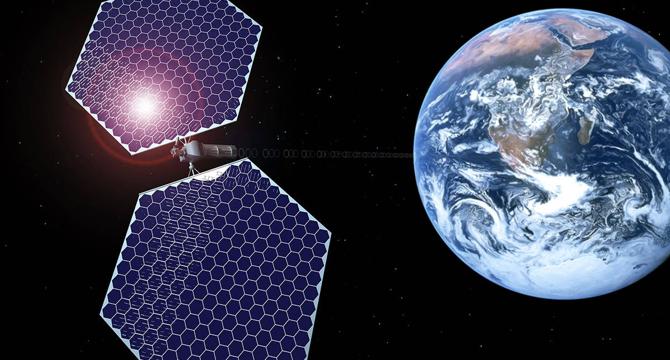Physicsworld
1M
232

Image Credit: Physicsworld
Space-based solar power: ‘We have nothing to lose and everything to gain’
- Space-based solar power (SBSP) involves capturing sunlight in space and beaming it as microwaves down to Earth, where it would be converted into electricity to power the grid. Wind, solar and batteries are 'low-density' renewables, requiring many tonnes of minerals to be mined and refined for each megawatt-hour of energy. SBSP technology can deliver baseload power 24 hours a day, irrespective of local weather conditions on Earth. Low-density renewables require a Herculean expansion in electricity grid transmission pylons and cables to connect them to users. Recently, Physics World reported that introducing just 8 GW of SBSP into the UK’s energy mix would deliver system savings of over £4bn every year.
- The utility of SBSP is likely to be even greater when considering whole continents or global alliances, as it has a truly global impact. Proponents believe that SBSP is a “no-regrets” investment that will see huge environmental and economic benefits, with spin-off technologies in wireless power beaming, in-space assembly and photovoltaics. However, skeptics have criticized SBSP for its cost and practicality. NASA’s report on SBSP made absurdly conservative assumptions of the economics; however, the same study also looked at more reasonable scenarios than the “baseline” and concluded that 'these conditions would make SBSP systems highly competitive with any assessed terrestrial renewable electricity production technology’s 2050 cost projections'.
- Currently, the UK has a leadership position in SBSP, with one company, Space Solar, designing a solar-power satellite called CASSIOPeiA with more than twice the power-per-unit-mass as ESA's design. The first commercial product, which could be launched by a single Starship rocket, is expected by 2029 and can deliver 30 MW of power at scale. Although engineering challenges still remain, efforts are underway to ensure SBSP remains an affordable and reliable clean energy source.
- Despite current skeptics, SBSP's global impact on affordable, reliable, and clean energy offers us the opportunity to transition to sustainable energy sources, which can power our life quality and maintain energy security. There's nothing to lose and everything to gain from supporting the advancement of SBSP.
Read Full Article
13 Likes
For uninterrupted reading, download the app